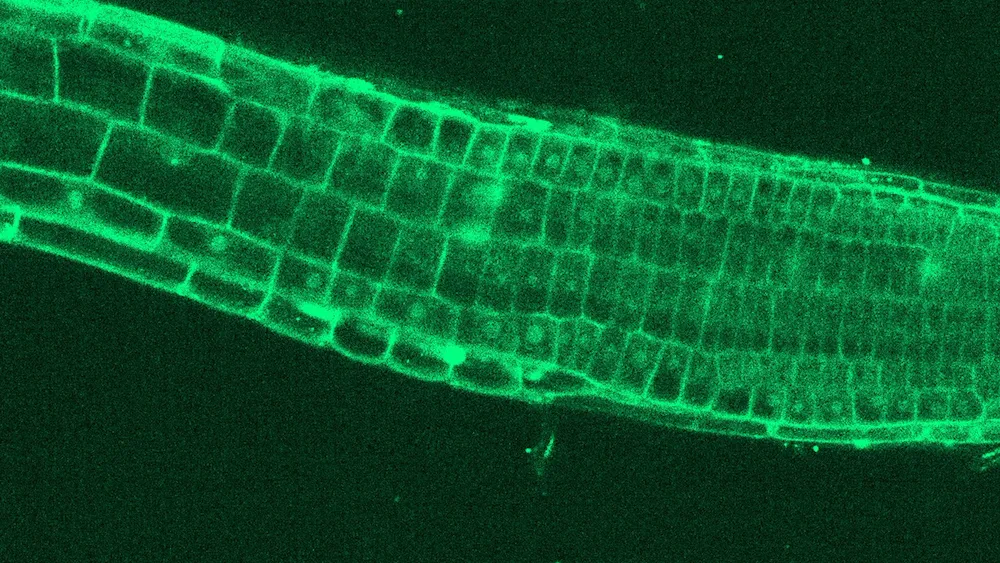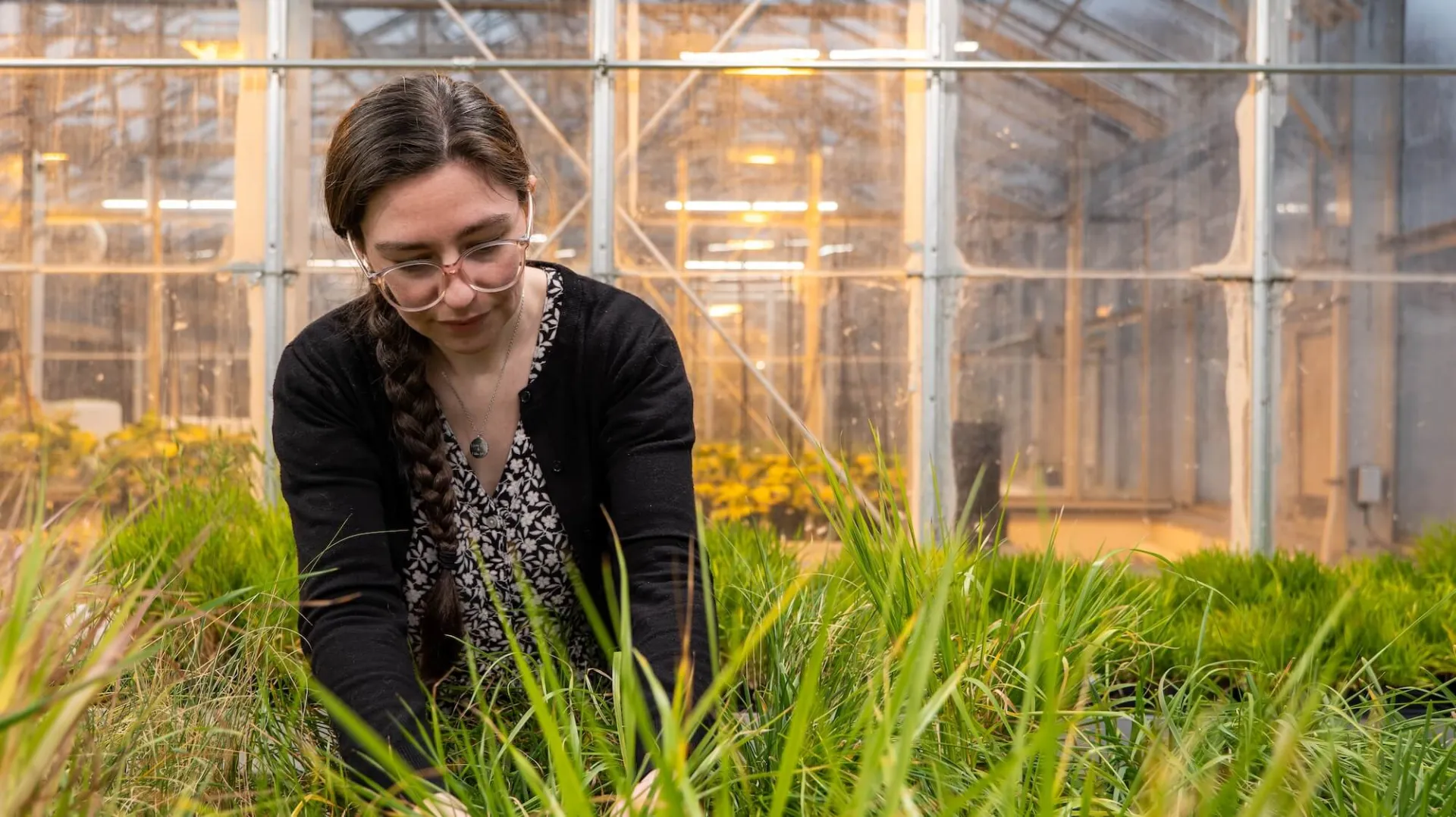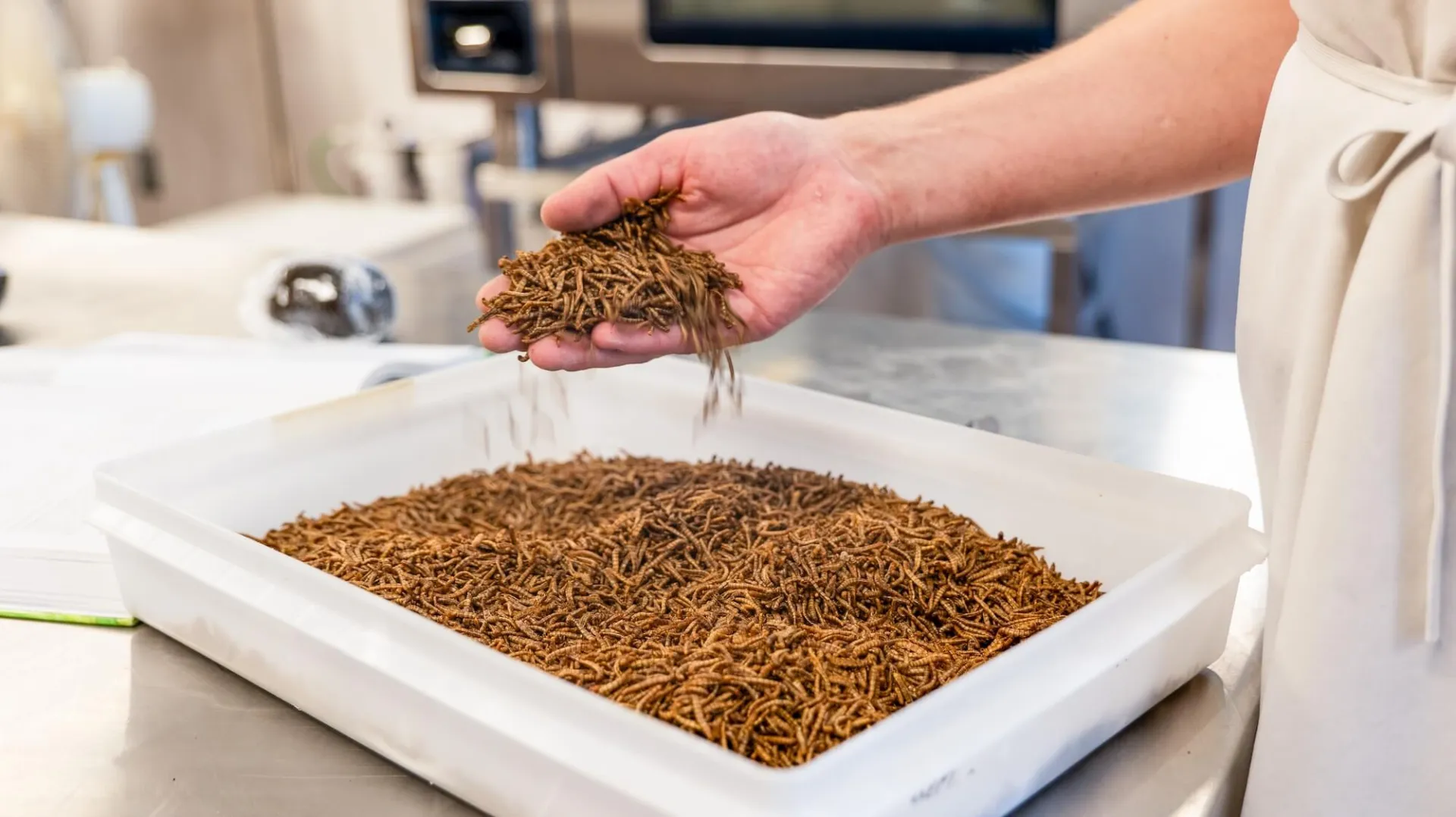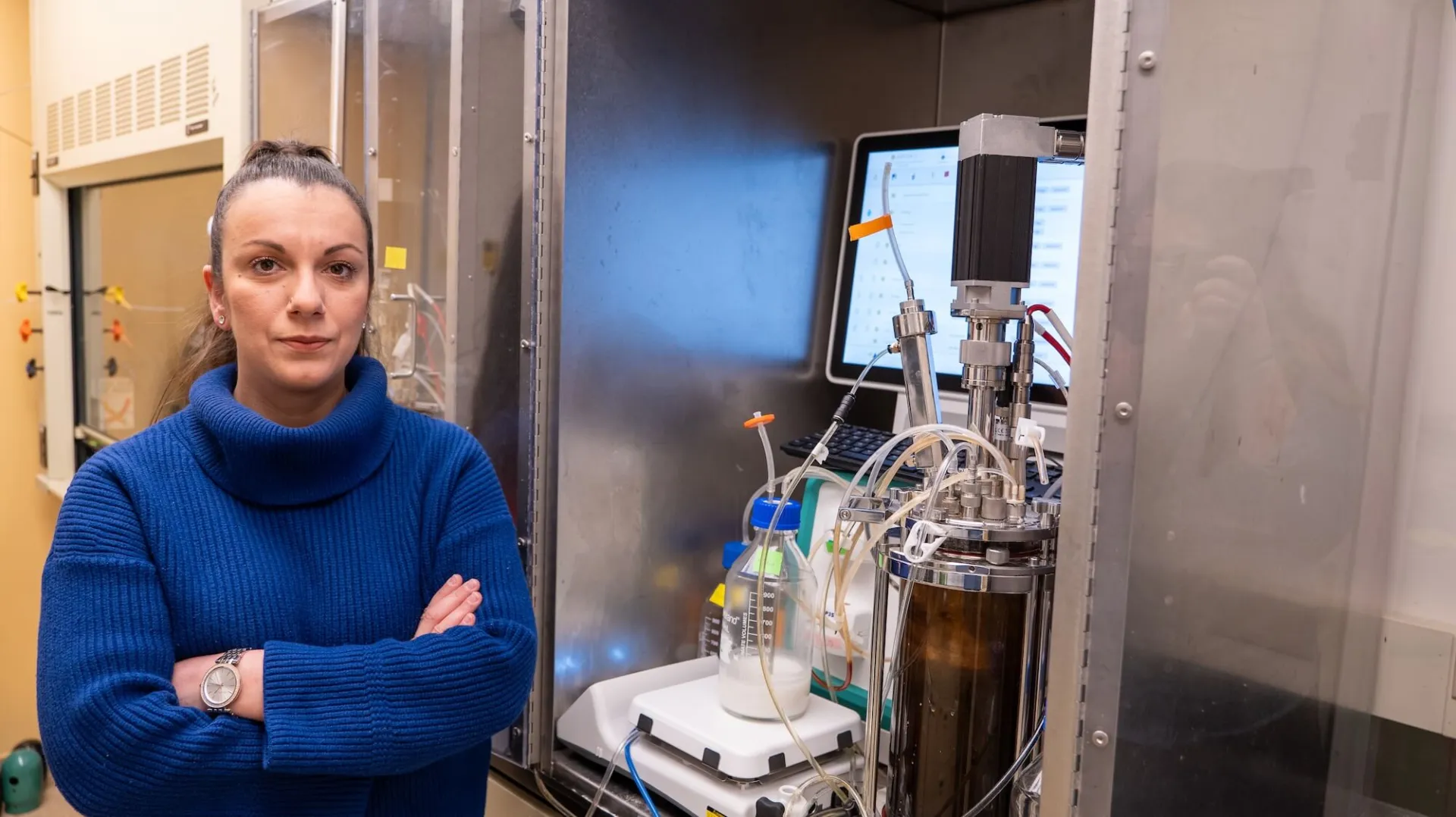Could the building blocks to a more sustainable food system lie in the cellular structure of plant roots? That’s the question driving the research of Food Systems Research Institute PhD Fellow Regina Visconti.
Visconti is a PhD candidate in Cellular, Molecular, and Biomedical Sciences (CMB) at the University of Vermont. She studies plant roots and root hairs - specifically the cellular pathways that influence their growth – which uptake water and nutrients to the rest of the plant.
Roots and root hairs are less commonly studied than the above ground portion of plants, which makes them ripe with research questions. Visconti images the roots and root hairs with a confocal microscope to observe how that process works at a cellular level in both wild and mutant plant species which can reveal how specific genes affect root development.
Visconti says this research can contribute to food security by helping develop more resilient crops. It can lead to developing crops that can thrive under stress, improve the soil health of their farmland, and even grow better in the environments where they will be sold and consumed, mitigating shipping needs.
While her work isn’t directly focused on crop development, it is vital basic research to better understand root systems and eventually improve crops and the greater food system.
About the FSRI:
The Food Systems Research Institute (FSRI) at the University of Vermont (UVM) funds people and planet-centered collaborative research that connects disciplines and communities to answer complex food systems questions.



